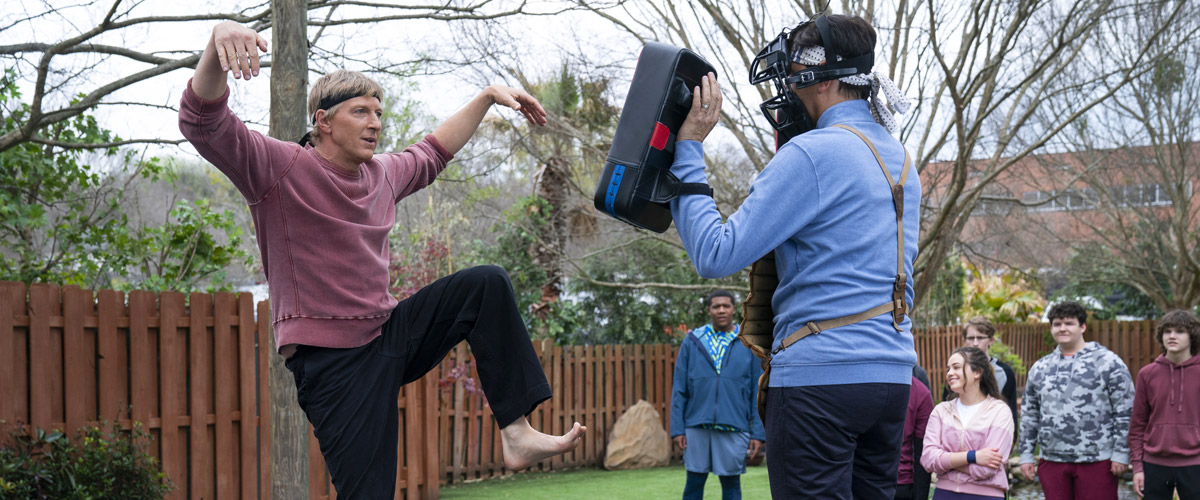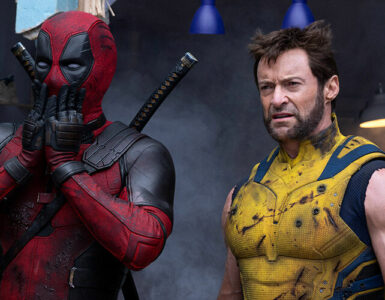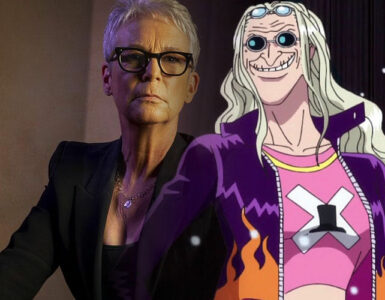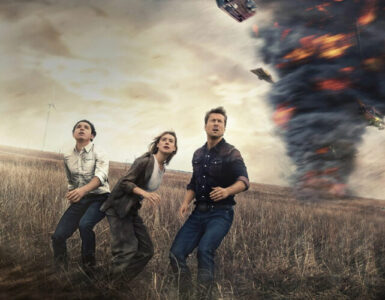Nostalgia is a powerful tool and while the likes of The Matrix, Spider-Man, and Ghostbusters have been actively harnessing it as a means to reach out to fans, no one has been doing it longer, and far better than the folks at Netflix’s Cobra Kai.
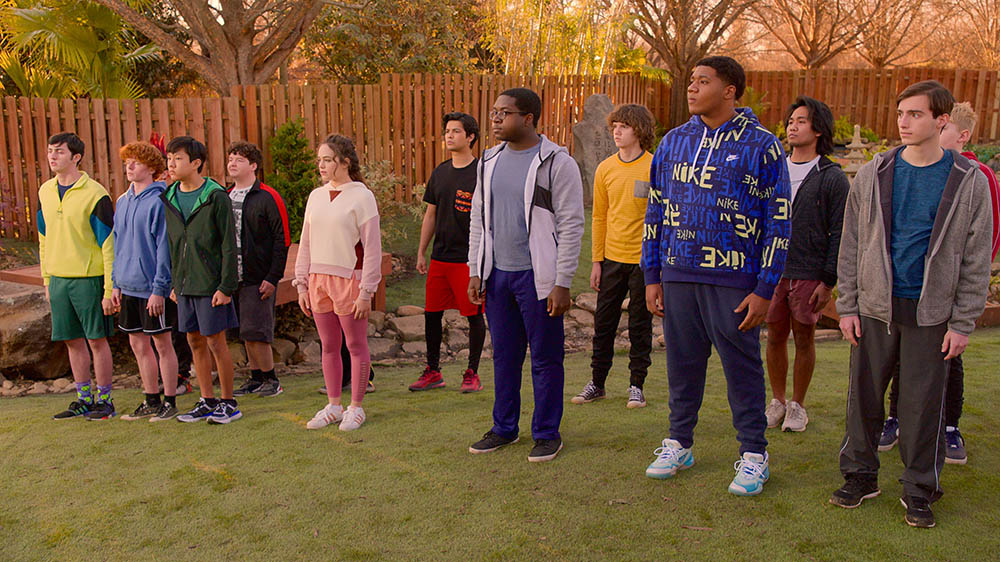
Originally conceived as a revisionist take on the original 1984 The Karate Kid film, starring Ralph Macchio (Daniel LaRusso) and William Zebka (Johnny Lawrence), the simple idea gained mass awareness in a 2013 episode of How I Met Your Mother, where it was postulated that LaRusso wasn’t the hero as depicted in the film, but it was Lawrence who was undermined instead.
Traction accelerated since then and in 2017, Cobra Kai was greenlit as a sequel to the popular Karate Kid movie trilogy, with Macchio and Zebka reprising their roles in events set 35 years after the first film.
The martial arts comedy follows both families revisiting the rivalry that continues with friends and family, and while original sensei Mr Miyagi was no longer in the show, as star Pat Morita passed away in 2005, his legacy remains throughout the series, which is currently in its fourth season. And audiences better be prepared, as the latest season maintains the comedy, and continues to sweep fans off their feet with more hijinks, teen drama, betrayal and karate action, all based on a franchise that has no reason for being this enjoyable, but is a joy to watch.
This is not a show based on actual stunt fighting, so there are no special effects or kick-ass fighting to be in awe of. The characters, and the original trilogy for that matter, weren’t that amazing to begin with, so maybe that’s why we’re more open to this sequel, but the fun is in dissecting the raw emotions from over three decades ago, reminding everyone one of us that there will always be unresolved issues we’ve forgotten, and when presented the chance, will we change things for the better, or continue to stubborn despite growing up?
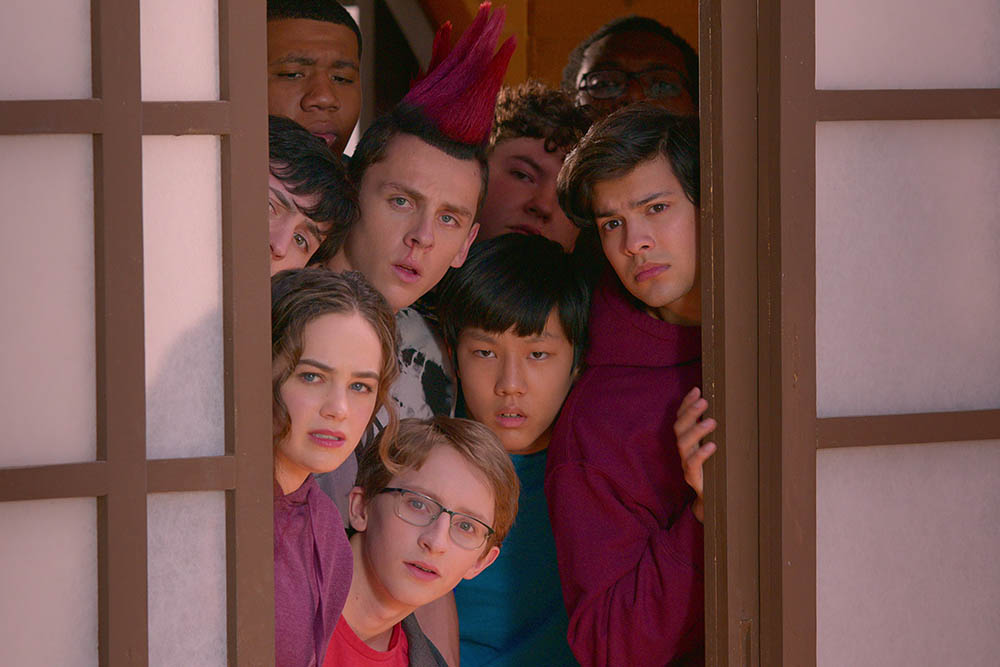
This time, LaRusso and Lawrence have decided to have a truce in their feud, and band together both the Miyagi-Do and Eagle Fang dojos to take on Cobra Kai dojo, which is now under the management of long time The Karate Kid nemesis, John Kreese (Martin Kove). What’s at stake is the Mid-Valley Karate Tournament, where the losing dojo will have to close down.
If you’ve followed the streaming sequel, which began at YouTube before finding a permanent home at Netflix, you’ll realise that half the show is about introducing new characters – LaRusso’s ’s daughter, Samantha LaRusso (Mary Mouser), and Lawrence’s estranged son, Robby Keene (Tanner Buchanan), as well as their friends turned nemeses, Eli “Hawk” Moskowitz (Jacob Bertrand), Demetri (Gianni DeCenzo), Tory Nichols (Peyton List), and more.
One thing you’ll realise is that each season, who was once on Camp LaRusso can easily, for reasons sometimes silly, end up with Camp Lawrence and vice versa, and that’s the foundation of the show, that it’s not necessarily good versus evil, but which side of the stands you’re viewing from. After all, this isn’t about good or evil – it’s about a karate competition, or any teen sport where there’s always a winner and losers.
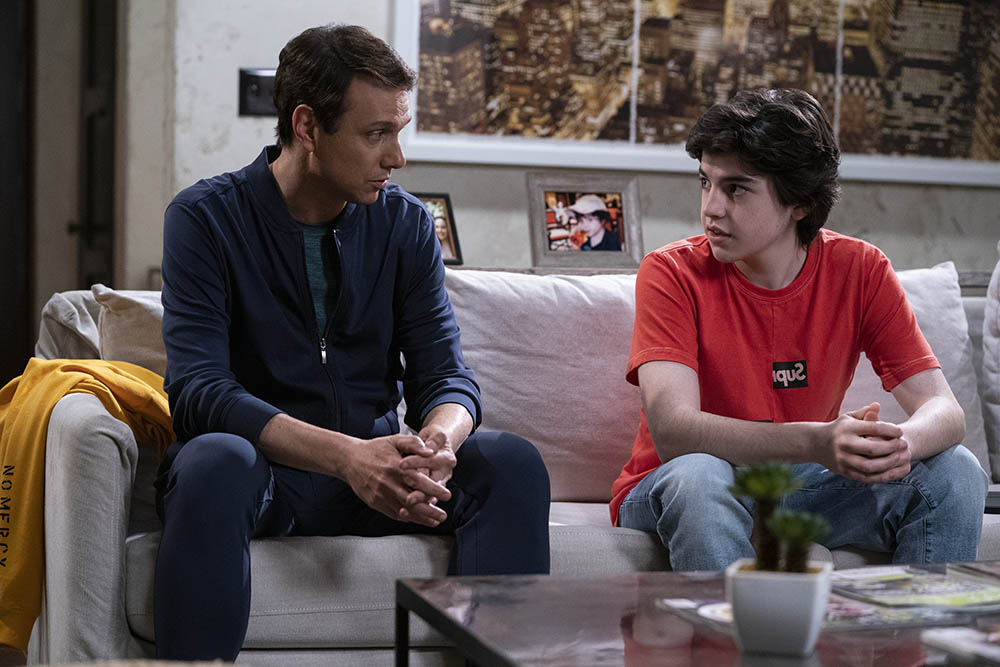
Where the show is also great at, is revisiting the past and bringing back characters from the trilogy. Last season, we saw the return of the two female leads, Elisabeth Shue as Ali Mills and Tamlyn Tomita as Kumiko, in extended cameos, and this time around, we see the return of Thomas Ian Griffith as Terry Silver, from The Karate Kid Part III. Silver, an old Vietnam War buddy of Kreese, is approached to rejuvenate Cobra Kai dojo, so our two old heroes now have two old bad guys to deal with.
The fun in the series isn’t watching the teens using their skills at school or at parties trying to take each other out – it’s in watching four old guys trying to relive their glory days, each believing themselves to be the hero of their own stories and reclaiming past victories, while reliving old dramas.
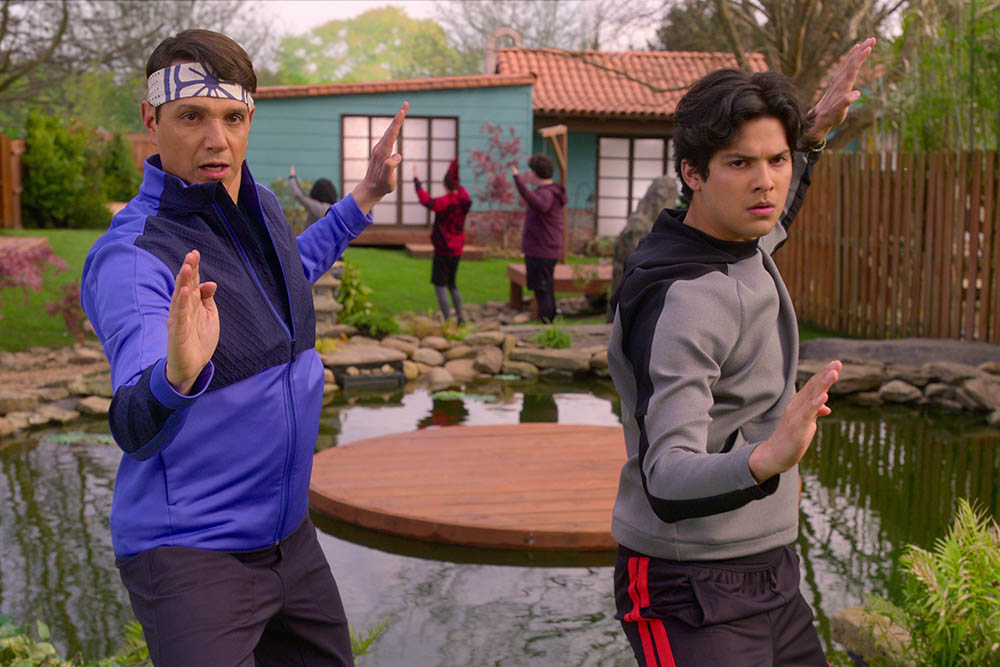
After three seasons, you would think that the formula would have grown stale, but it’s amazing how the four elderly stars breathe new life into their 30-year-old characters, reinvesting their effort in defeating the shadow from their past, and drinking their own Kool-Aid and recollection of times past.
After decades of playing defense, LaRusso is now opened to consider taking the offense, while Lawrence, so used to being the aggressor, learns a thing or two about building a good defense, and while the story beats are familiar, nothing beats seeing their two grown man let ego get in the way, as they try to change but hold firm in the lessons that they learned growing up.
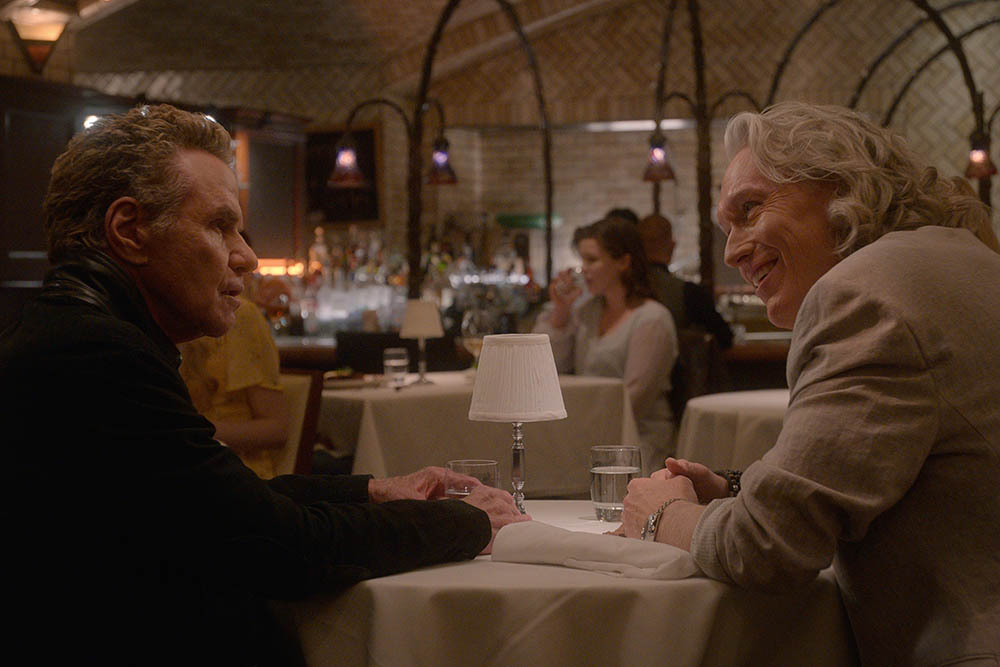
Watching Kreese and Silver revisit their roles in the grand scheme of things also touches upon the failings of the third film, which is considered to be the weakest of the franchise. But audiences don’t have to be familiar with the narrative, just that there’s a history at play here, and there is no denying the quest for dominance by the two old friends.
The only drawback here is that with the focus so much on the four older guys, the younger characters take a slight back seat. The rivalry between the two girls, Samantha and Tori, as well as the two guys, Robby and Miguel Diaz (Xolo Maridueña) were front and centre in the first three seasons, and there’s still so much of their stories to be told. Instead, season four also plays up the importance of Anthony LaRusso (Griffin Santopietro), who was merely a tertiary character in the first three seasons, but is now seemingly groomed to further the feud between all the ass kicking bad blood flying around.
Expectedly, the final episode goes big into the Mid-Valley Karate Tournament, and the end results plays out exactly as fans would expect – there’s a new winner, but who’s to say that the winner always has to be the good guy, and that the loser is always the villain?
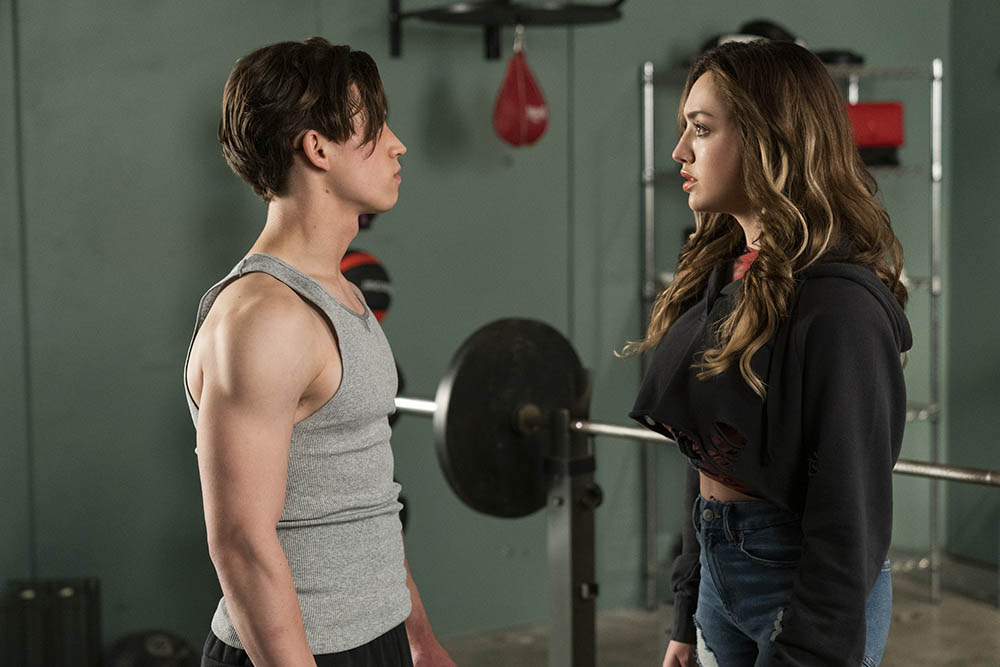
Now that LaRusso and Lawrence know more about each other and have greater respect, and that the relationships between the teenagers have more or less been established, let’s hope that the writers don’t give us a season 5 filled with role reversals. The ending of this season opens up a new chapter of the franchise, with multiple story elements that would satisfy old fans, and new ones as well.
With Hollywood focusing on legacy franchises and characters, attention should be given to Cobra Kai – they’ve been doing it well for the last four seasons, and continue to show that with the right characters both old and new, there is a way to revisit the past, honour the legacy, and still look towards the future, while sweeping everyone off their feet.
GEEK REVIEW SCORE
Summary
Cobra Kai adds a new chapter to an almost 40-year-old franchise that continues to respect its beginnings, by teaching new lessons, while poking fun at its legacy at the same time.
Overall
8.3/10-
Story - 8/10
8/10
-
Direction - 8/10
8/10
-
Characterisation - 8/10
8/10
-
Geek Satisfaction - 9/10
9/10

